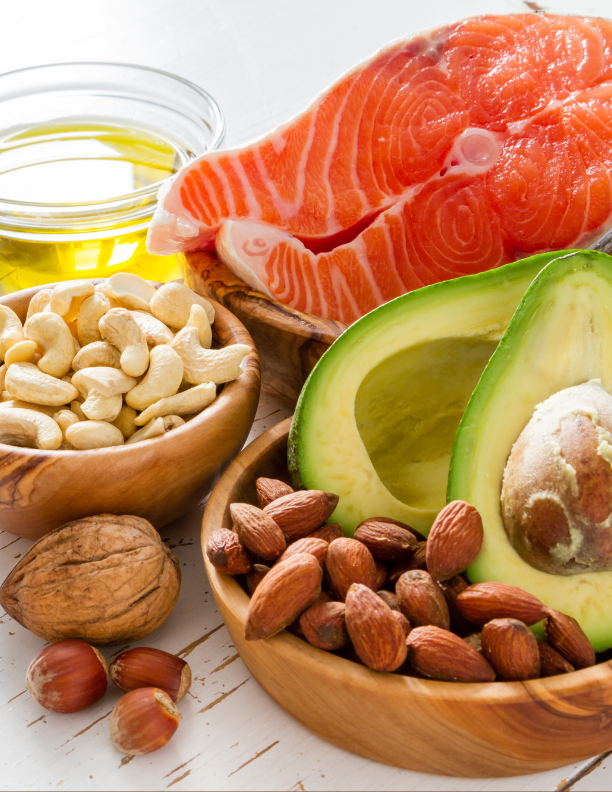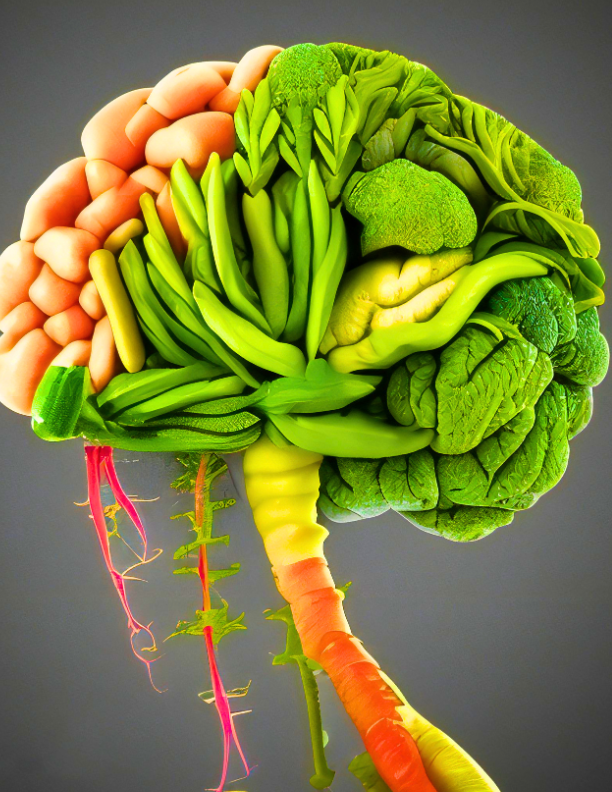My Top 5 Tips to Ease Menopause Symptoms

Navigating menopause can feel like a rollercoaster, but the right diet can make a world of difference. Here are my 5 top tips to help ease symptoms, balance hormones, manage weight gain and support overall wellbeing during this transitional phase.
 Tip #5: Eliminate Processed Foods
Tip #5: Eliminate Processed Foods
Processed foods are any items altered from their natural state, often loaded with harmful ingredients like processed sugars, salts, additives, and preservatives. Think pre-packaged meals, sugary snacks, takeaway convenience foods, and heavily processed bread and dairy.
Why does this matter during menopause? Processed foods can trigger inflammation, making it harder for your body to regulate hormones, manage weight, and control mood swings.
The solution? Swap inflammatory processed options with nourishing whole foods. Avoid additives, artificial colours, and processed sugars, as they promote inflammation, disrupting your body’s natural balance.
What to eat: Incorporate seasonal fruits and vegetables, healthy fats from avocado, nuts, and seeds, sustainably sourced proteins, and organic eggs. These nutrient-rich choices can bolster your system, helping your body cope with hormonal changes more effectively.
 #4: Increase Plant-Based Whole Foods
#4: Increase Plant-Based Whole Foods
Whole foods are the superheroes of a balanced diet, offering maximum nutrients with minimal processing. From the sweetness of fresh summer strawberries to the natural crunch of a juicy cob of corn, these ingredients bring vitality to your plate.
Did you know? The moment fruits and vegetables are harvested, they start losing nutrients. Fresh, minimally processed produce offers the most benefits to your body, making it easier to absorb the nourishment it craves.
Why is this important during menopause?
Plant-based whole foods are rich in antioxidants, fibre, and phytoestrogens—natural compounds found in plants that can mimic or balance estrogen in the body. These nutrients help reduce inflammation, improve digestion, and support hormone regulation, which is essential for managing menopausal symptoms like mood swings, hot flashes, and weight gain.
What to eat: Adding plant-based foods like chickpeas, lentils, and organic veggies into your meals supports a smoother menopause journey by nourishing your body with the tools it needs to maintain balance and resilience during this transition.
 Tip #3: Consume Good Fats
Tip #3: Consume Good Fats
Good fats are vital for brain health, heart function, and hormone balance. When your brain is functioning optimally, it becomes easier to manage depression, regulate hormones, and maintain stable blood sugar levels.
Why is this important during menopause?
During menopause, fluctuating hormone levels can lead to mood swings, fatigue, and difficulty with weight management. Healthy fats, especially omega-3 fatty acids, support the production and balance of hormones like estrogen and progesterone. They also help reduce inflammation, which is often heightened during this time, and contribute to better brain function, improving mood and mental clarity.
What to eat: Incorporating omega-3-rich foods like sustainably sourced oily fish, avocado, nuts, seeds, olive oil, and organic eggs can transform how your body handles menopause.
The result? Improved sleep, balanced moods, better weight management, and reduced tiredness.
 Tip #2: Heal Your Gut
Tip #2: Heal Your Gut
Have you heard of the brain-gut axis? It’s the connection between your gut and the emotional centre of your brain. A healthy gut enhances brain function, reducing the intensity of menopausal symptoms like mood swings and hot flashes. When your gut is balanced, it also supports better nutrient absorption, digestion, and hormone regulation, making menopause more manageable.
Why is this improtant during menopause? Healing your gut can empower your brain to manage hormone changes more efficiently, making menopause feel less overwhelming.
What to eat: Gut friendly fermented foods like yoghurt, sourdough bread, raw honey, and fermented veggies. Whole, unprocessed foods and healthy fats to support gut health.
 Tip #1: Eat Magnesium-Rich Foods Daily
Tip #1: Eat Magnesium-Rich Foods Daily
Magnesium is essential for muscle, nerve, and hormone function. It helps manage mood, promote relaxation, improve sleep, and regulate hormones like estrogen and progesterone.
Why is this important during menopause?
Magnesium supports the regulation of fluctuating hormones, reducing symptoms like mood swings and hot flashes. It helps lower cortisol levels, easing stress and anxiety, and improves sleep quality by promoting relaxation and muscle function. Magnesium also plays a role in balancing blood sugar and improving insulin sensitivity, which helps prevent weight gain and supports weight loss during menopause.
Magnesium-rich foods to include: Quinoa, Spinach, Almonds, Avocado, Dark chocolate
Your Next Step: The Menopause Ease Meal Plan
Ready to bring these tips into your daily life? The Menopause Ease Meal Plan incorporates these key nutrition strategies in an easy to follow plan. Developed with whole-food-based recipes, this plan includes nutrient-dense, antioxidant-rich meals tailored for menopause relief.
What’s included:
- Easy-to-follow menus.
- Gluten-free, dairy-free, and vegan options.
- A daily ritual featuring Organic Cacao Drinking Chocolate for a soothing end to your day.
Take control of your menopause journey with nourishing meals that help you glow from within. Embrace this phase with confidence, energy, and balance.
Disclaimer: This information is for educational purposes only and does not replace medical advice. For personalised guidance, consult a healthcare professional.

